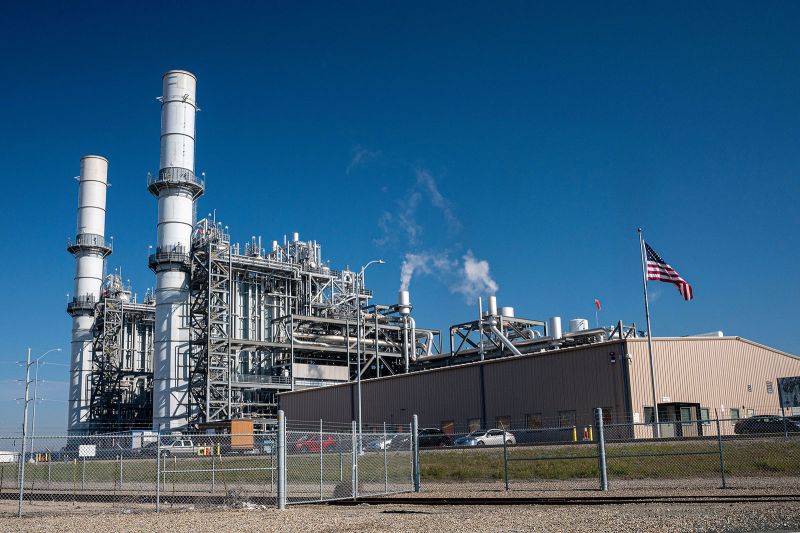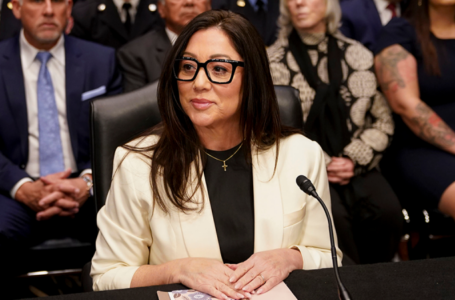Putin makes surprise visit to Kursk as Trump says peace is ‘up to Russia now’
Biden administration considers scrapping a futuristic proposal to slash power plant pollution


The potential change of plans comes as the administration faces fierce political headwinds, a conservative Supreme Court majority that has shown aggressive interest in curtailing the Environmental Protection Agency’s authority and questions over how fast electric utilities can pivot to the most innovative climate solutions.
The EPA is considering eliminating a proposal for new natural gas plants to use hydrogen alongside natural gas to make electricity, the sources said. The expected changes mean both existing coal and new gas plants would primarily rely on carbon capture and storage to cut their climate pollution, rather than hydrogen fuels. Hydrogen, while in its infancy, is seen by scientists as the future of clean fuel.
The power plant rules are still under review and no final decisions on them have been made.
EPA spokesperson Tim Carroll declined to comment, saying, “The draft final rule is currently with the Office of Management and Budget under interagency review.” A White House spokesperson did not immediately respond to a request for comment.
The EPA power plant rules are one of the most important and highly anticipated planks of President Joe Biden’s climate agenda.
The potential change comes amid questions on how quickly the industry could scale up clean hydrogen, a relatively nascent technology derived both from fossil fuels such as natural gas, as well as cleaner hydrogen – which uses clean electricity to split water.
Utilities have proposed building more natural gas plants to keep electricity flowing onto a grid with increased demands from the growing number of electric vehicles and AI and data centers. Clean energy and climate groups have argued in favor of cleaner and cheaper sources of energy such as wind, solar and battery storage.
The possible move away from hydrogen could make it easier for the EPA to defend against potential court challenges to the plan.
The conservative Supreme Court and its 2022 ruling on West Virginia v. EPA has loomed large over how the agency has crafted its rules. The Supreme Court ruling significantly curtailed the EPA’s ability to regulate carbon pollution at power plants by having utilities outfit their power plants with carbon capture, rather than requiring a shift from coal or natural gas-fired power to cheaper and cleaner sources like wind and solar.
One of the thorny issues facing the EPA was how using hydrogen at natural gas plants would fall in the Supreme Court’s narrow definition. And some environmental groups were concerned it would be tough for the federal government to ensure the hydrogen was clean, not more polluting.
The EPA is also considering pushing back its initial timeline requiring existing coal-fired power plants to cut or capture 90% of their planet-warming pollution using carbon capture and storage by two years to 2032, the sources said.
The EPA announced in February it would delay the rule-making process for carbon emissions from existing gas plants, which had initially been covered under the agency’s proposal last year.
O’Boyle said that, judging from the comments and wide disagreement from industry and environmental groups, it is very likely that EPA will face a lawsuit.
“One thing we can all count on is that the EPA will be sued by an aggrieved party under this rule, no matter what,” O’Boyle said. “There will be lawsuits.”
Vickie Patton, an attorney for the Environmental Defense Fund, told reporters on a Thursday call she believes the EPA’s final rule will be on “strong” legal footing.
“They’ve really followed the law, and they have also a very rigorous record,” Patton said.











